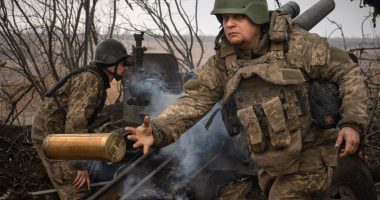
For more than four decades, Gustavo Gorriti has been a thorn in the side of corrupt elites, relentlessly uncovering government wrongdoing in Latin America – most recently exposing an unprecedented level of graft in Operation Car Wash, the continent-wide scandal that has ensnared nearly every elected Peruvian president of this century.
Gorriti made his name reporting the bloody rise of the Mao-inspired Shining Path. He was kidnapped by military intelligence agents during Alberto Fujimori’s 1992 power grab after unmasking his shadowy spymaster Vladimiro Montesinos.
Now at 76, the combative five-time former judo champion is facing a criminal investigation and a smear campaign unlike anything he has faced in the past. The assault comes as his body wrestles with aggressive lymphatic cancer. He completed chemotherapy in December – just as what he calls a “filthier kind of sickness” was pumped out in fake news outlets.
The “massive campaign of disinformation” led to him becoming the subject of a criminal investigation into claims he swapped “media support” for leaks from Operation Car Wash prosecutors.
Alcides Chinchay, the prosecutor who is leading the investigation, has demanded that Gorriti turn over the phone numbers he used between 2016 and 2021, and says he plans to reveal secret communications between the journalist and the Car Wash prosecutors.
“You want my phone number? Half of Lima has it. Enjoy,” Gorriti said defiantly, sitting on the terrace of his home in Lima. But he would never reveal his journalistic sources, he said, adding that he told the prosecutors: “I won’t give you anything, not now, not ever, at whatever the cost.”
What was at stake, he said, was not just protecting his sources, but the rights of journalists in Peru – and a much more important struggle to protect democracy from the “massive use of lies and intimidation”.
The campaign against Gorriti has gone beyond fake news and the courts to intimidation and physical threats. Far-right activists who call themselves La Resistencia frequently picket his home and office where he leads IDL-Reporteros, an investigative journalism outlet. Protesters have hurled bags of excrement, shouted antisemitic insults and made death threats.
Gorriti’s political enemies – especially those he had investigated – have joined the revenge-fueled tsunami of disinformation.
Some of the feigned outrage is driven by baseless claims made by Jaime Villanueva, a detained former adviser to a suspended attorney general, Patricia Benavides, who faces corruption allegations.
Villanueva’s latest unsubstantiated accusation is that Gorriti celebrated the suicide of former president Alan García, who shot himself in 2019 when police tried to arrest him in connection with Operation Car Wash.
Not long ago, Gorriti received standing ovations at public events and handshakes and hugs on the street for his revelatory investigations.
“I really thought we were getting into a better country, into a better future,” Gorriti said. “Then I blinked – and we are at the bottom of the swamp.”
Lima’s far-right mayor, Rafael López Aliaga, has called Gorriti the most powerful person in Peru and accused him of ties to George Soros. The legacy media has “at best, looked the other way with silent complicity”, Gorriti said.
For the veteran journalist, it is a “counterattack by the most sinister and corrupt forces against democracy and plain human honesty”. He believes it is no coincidence that the campaign has intensified ahead of the trial of Keiko Fujimori, the former president’s daughter and a three-time presidential candidate, who is accused of handling illicit campaign finances.
“It’s almost a direct copy of what was done in Guatemala,” says Gorriti, referring to the case of the veteran journalist José Zamora, who was jailed for nearly two years on money-laundering charges. Zamora’s conviction was thrown out last week but he remains detained on other charges.
Both journalists are past winners of the prestigious Maria Moors Cabot journalism prize and its board has condemned the “criminalization of independent journalism in Latin America”.
Gorriti leads a long list of journalists under attack, among them Rosa María Palacios, who has been harangued by La Resistencia at her home and even at the supermarket, and Paola Ugaz, who has faced more lawsuits than any Peruvian journalist, with accusations ranging from defamation to money laundering for her investigation of far-right Catholic sect Sodalitium.
International press freedom organisations like Reporters Without Borders have called on Peru’s attorney general’s office to drop the “politically motivated” investigation against Gorriti.
Artur Romeu, director of RSF’s Latin America bureau, said the case was intended to “dissuade journalists from investigating corruption among the political elite, on pain of finding themselves in the dock”.
Peru has seen the biggest drop in press freedom in Latin America, according to the Reporters Without Borders’ World Press Freedom Index, ranking 110th out of 180 countries in 2023, a drop of 33 places from 2022.
“In the day-to-day practice of journalism, what we see are very worrying signs that abuse, stigmatisation and harassment are multiplying,” said Carlos Jornet, president of the Freedom of Expression Commission at the Inter American Press Society.
Another study found state actors, including police, politicians and the radical groups they control, were the main aggressors against journalists in Peru. Legal harassment was also a major method used to intimidate journalists or obstruct their work, according to the report commissioned by the UK embassy in Lima.
Despite approval ratings of in single figures, Peru’s despised congress is intent on pushing through legislation that erodes judicial independence and parliamentary bills targeting journalistic practice.
After several months of immunotherapy, Gorriti’s trademark white beard and hair have grown back and he has regained some of the physique he honed practicing the self-defense technique krav maga. Even so prepared, he says, the attacks were unexpected.
“I had hoped at this time in my life to write all those unwritten books that I have inside me,” he said.
“You can make the best plans but fate has its way,” he added. “But I will fight back with my best efforts, knowledge, strategies and tactics and I have always fought to win.”
Read More: World News | Entertainment News | Celeb News
Guardian







